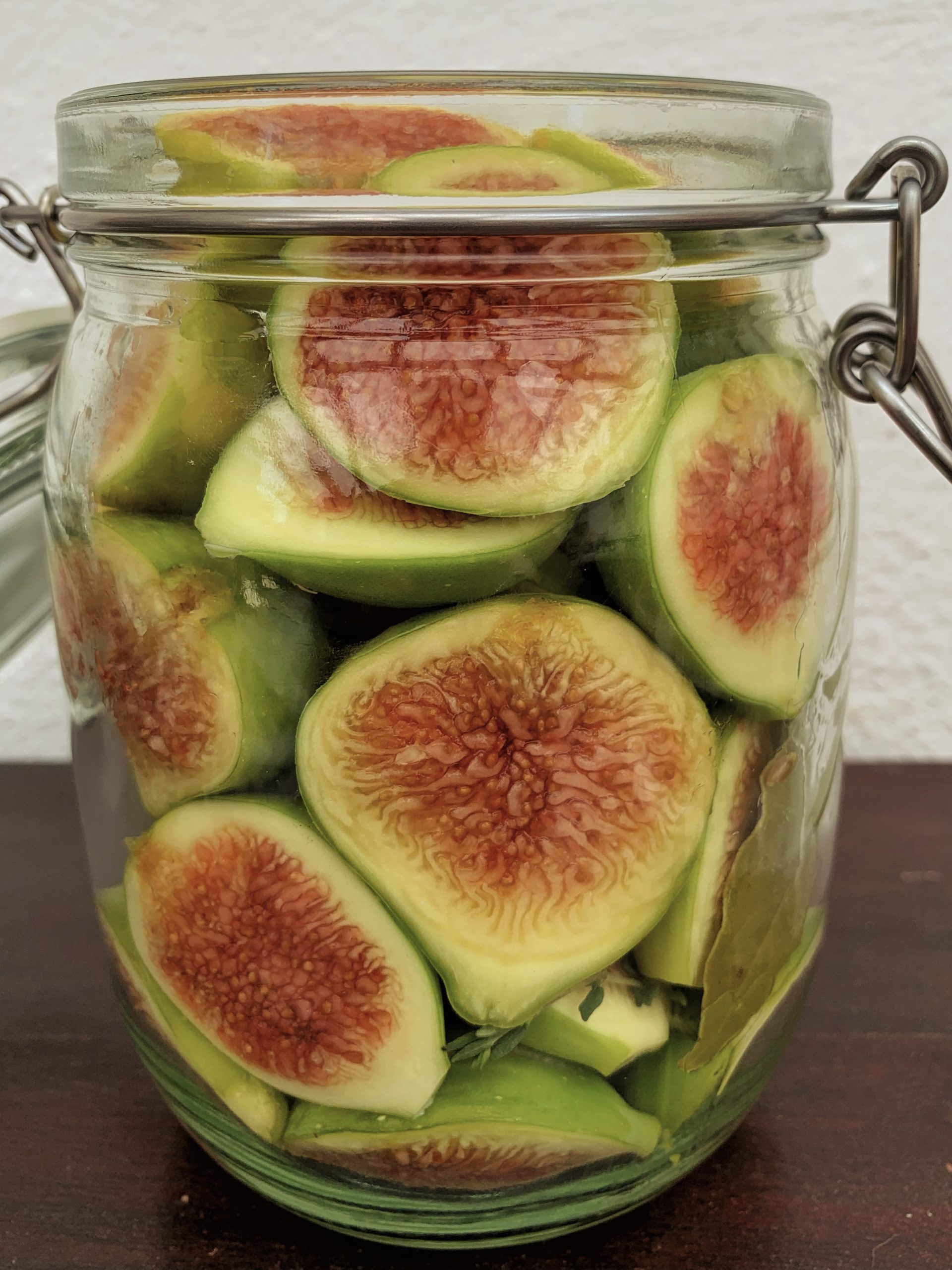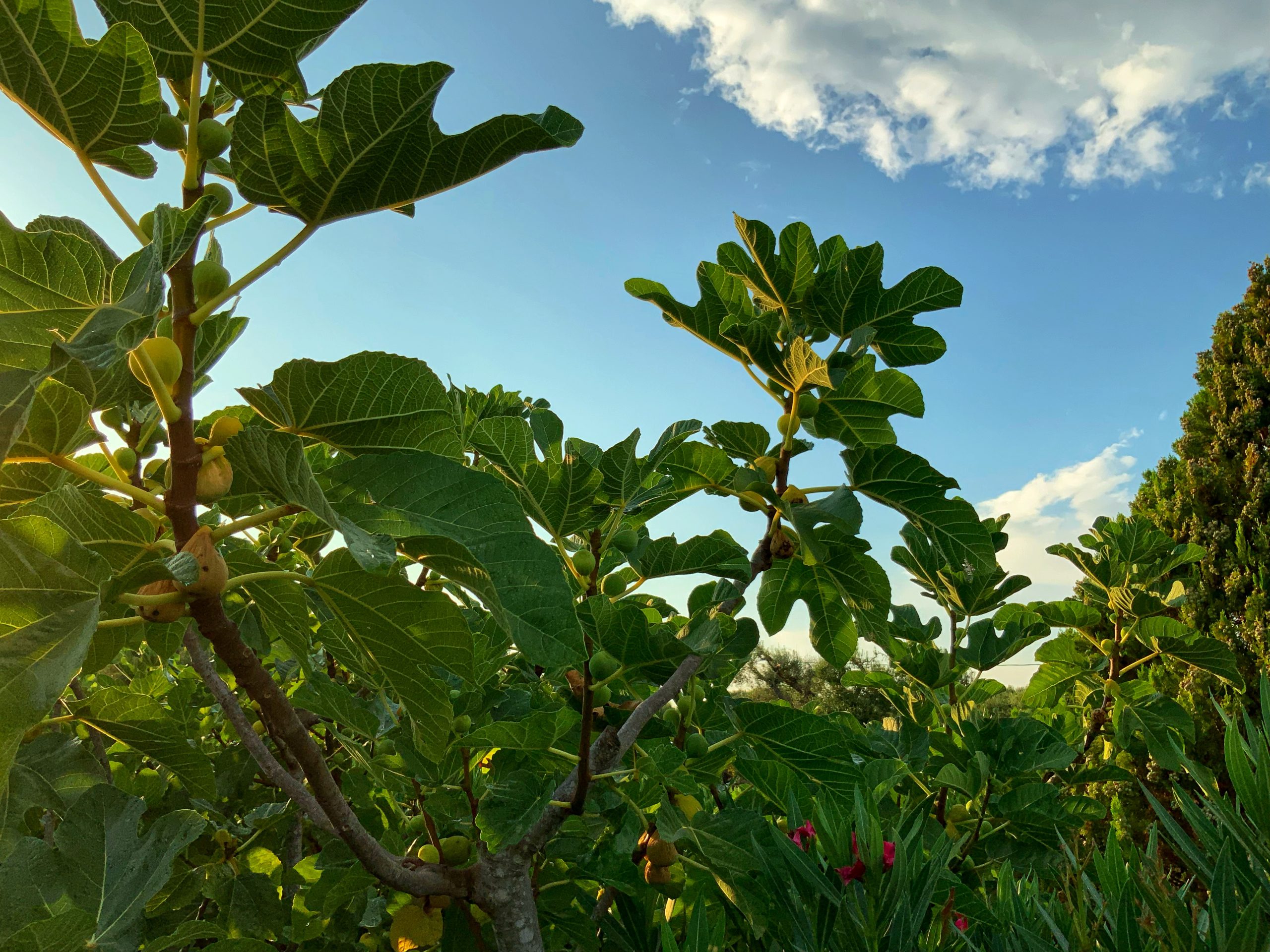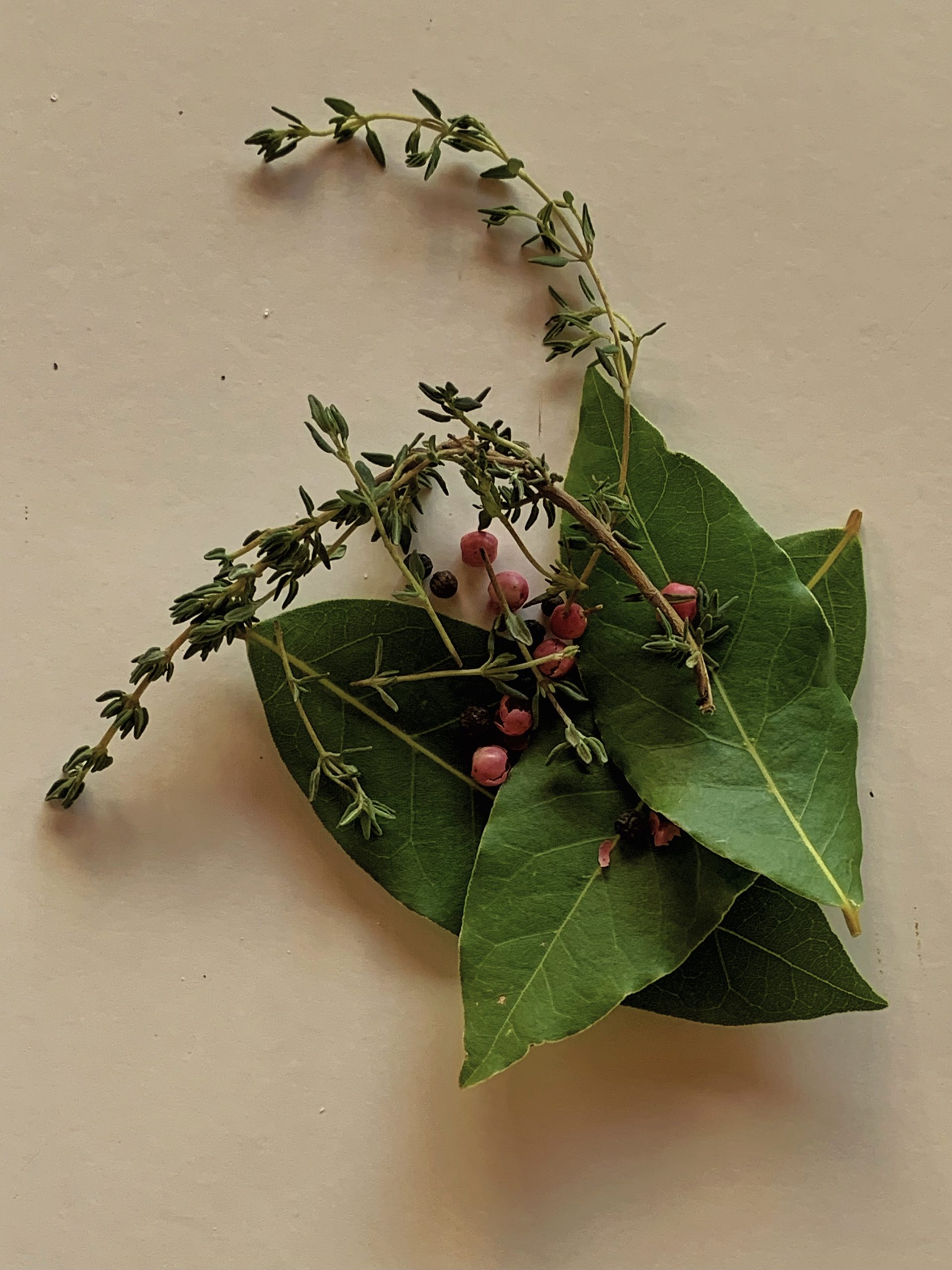In the summer heat of Puglia you can smell the figs. Once you recognise the sticky sweet scent of warm figs in the air, you will pick it up as you explore. Fig trees are all around in Puglia. They are a constant in our olive groves and, like our cacti and wild fennel, stray onto the sides of roads.
As with the apricots that start our season, our fig trees shame us. They produce more fruit than we can cope with. In May we will be making apricot compote, apricot jam, apricot sorbet and apricot liqueur. We eat as we pick, we bake tarts and we slice and freeze. Still we can’t use all of our harvest.
Just over 3 months later we find history repeating with our figs.
We dry figs on our bamboo trays as we do our sun dried tomatoes. Through figs are slightly more demanding.
Our olive grove and garden are organic. The first part of the drying process is to blanch them. We drop them whole into boiling water for 10-20 seconds, then transfer into iced water. Then they are sliced almost in half, but like a spatchcocked chicken the two parts remain connected so that we can fold them together again at the end of the process.
Once under the sun the sweet aroma of the fig continues to draw insects. If you didn’t know, figs don’t flower. For pollination they rely on a wasp climbing into the nascent fruit to be. Female figs dispose of the wasp naturally; message us if you want the science (#science1).
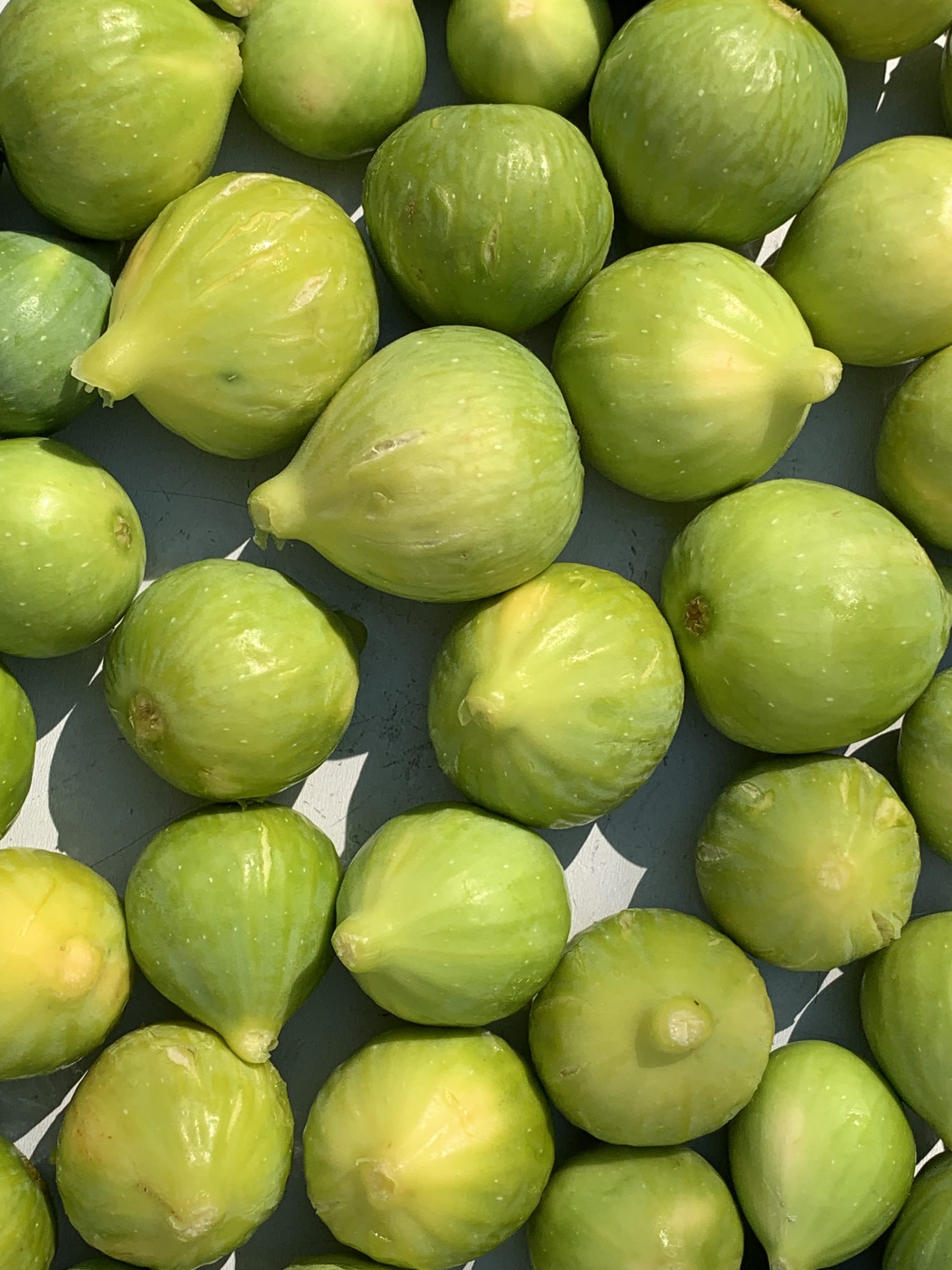
Thankfully bay is a natural insect repellent. We cut branches from our bay bushes and spread these around the drying figs. Bay is another wonderful aromatic that presents under the heat of Salento sun. In the heat of the day bay has a gentle, pleasant aroma that mosquitoes and other insects hate it. For the science it’s a compound called eucalyptol (#science2).
The drying figs need to be turned daily and taken in from the humidity at night. When they are at the point - it takes experience to know, but usually between 7-10 days - we finish them in the oven at an extremely low heat so they remain sufficiently sticky but sufficiently dry to be preserved. Then they can be stored packed tight in an airtight container, for up to 3 to 4 months.
Once ready we gently press an almond or hazelnut into the center, grate a little citrus peel over it - we have lemon and orange trees in our grove - and fold the two halves together again. Then we stuff them into boxes. Some we set aside to dip in chocolate. Those figs are really to cry for.
Jam is much simpler. Though we would love to know if you have any variations on a plain fig jam.
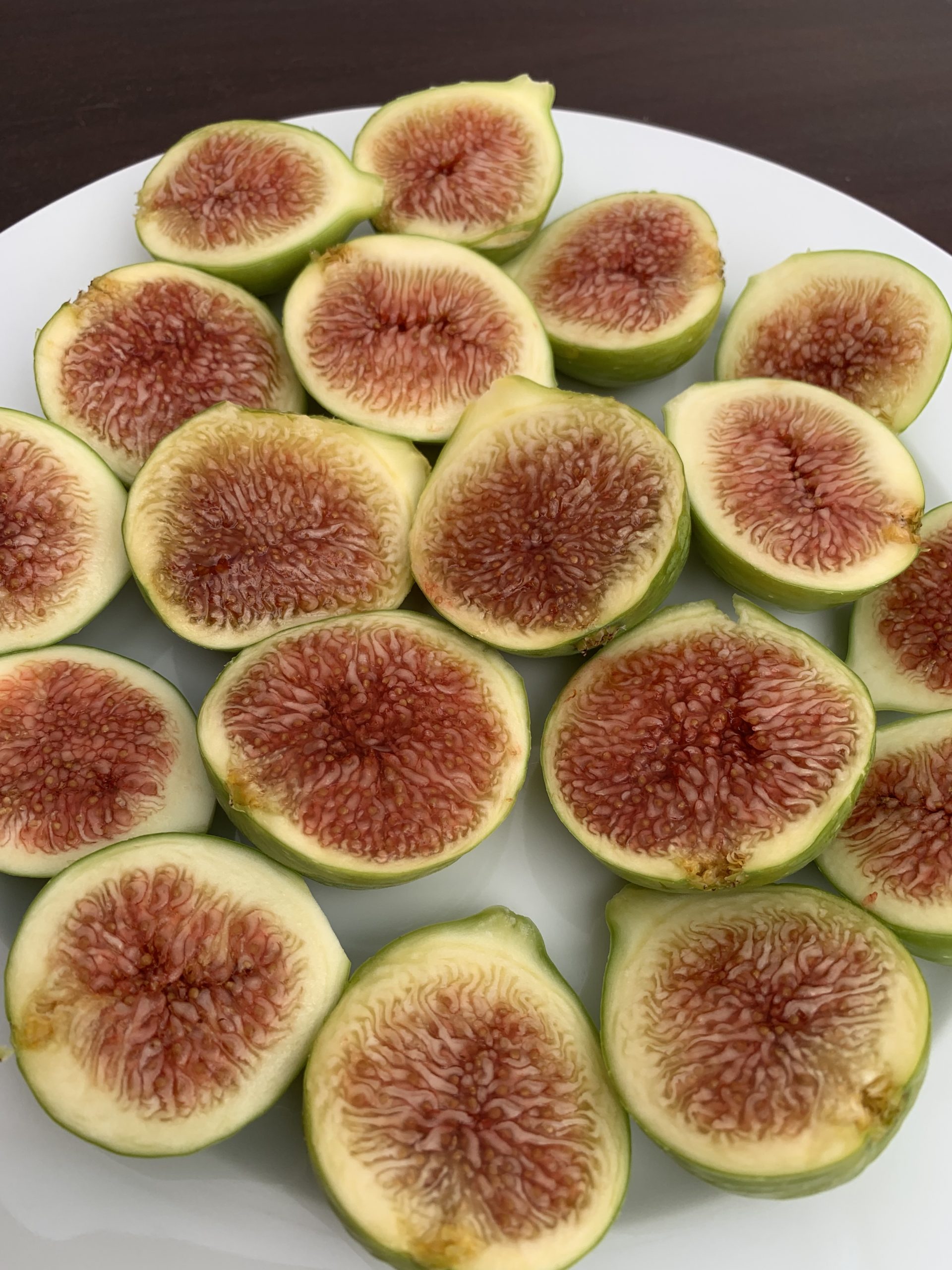
As for our pickled figs from the #WeAreInPuglia kitchen, here is how we do it. Like many things from #ThePugliaKitchen, it starts with a recipe. But once we understand it and because we know our produce, we are flexible. We may use less pickling liquor to more figs. But getting started we always recommend adhering to the recipe for success.
For pickling the figs should not be overly ripe. Slightly soft will work, but too squishy will be too much to survive the boiling pickling liquor.
For this you will need:
figs 400g
white wine vinegar 500ml
white sugar 300g
fennel seeds 1 tsp
pink | white | black peppercorns 8-12
bay leaves 3 or 4 depending on size
thyme qb = quanta basta, as much as you need, according to taste. We use 3 or 4 sprigs of fresh rather than dried
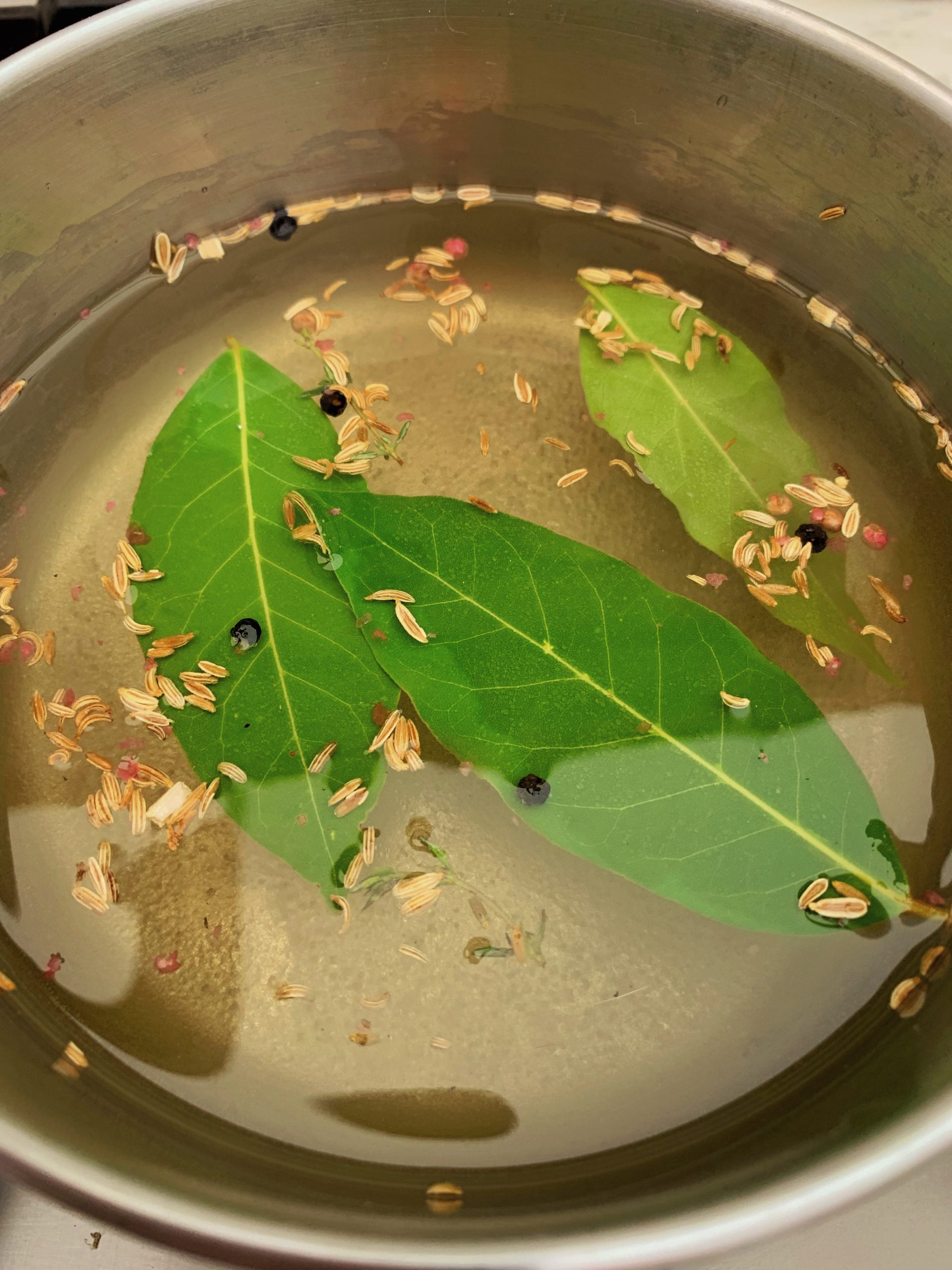
Method
The pan is important - you don’t want a copper or other reactive pan. Tip in the sugar and pour the white wine vinegar over it. Add the peppercorns, fennel seeds and bay leaves and over a gentle heat - we prefer the flame that tickles rather than angers our liquor - bring to a gentle boil.
These figs we cut completely in half. We sterilise a preserving or jam jar and drop the figs into them. We dont pack them tight as we do our dried figs. We want them to remain intact. In between layers we drop in our thyme sprigs, and the bay leaves removed from our pickling liquor.
Pour the pickling liquid over the figs, seal and store. We recommend at least two days before eating, but they should be good for up to 2 months. Once opened consume within 3-5 days. We keep ours refrigerated.
And like all things produced in your kitchen, enjoy with pride.
#WeAreInPuglia #Puglia #ItalianFood #Recipe #Food #Foodie #ThePugliaKitchen #PugliaKitchen
